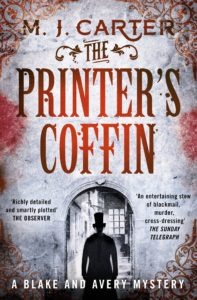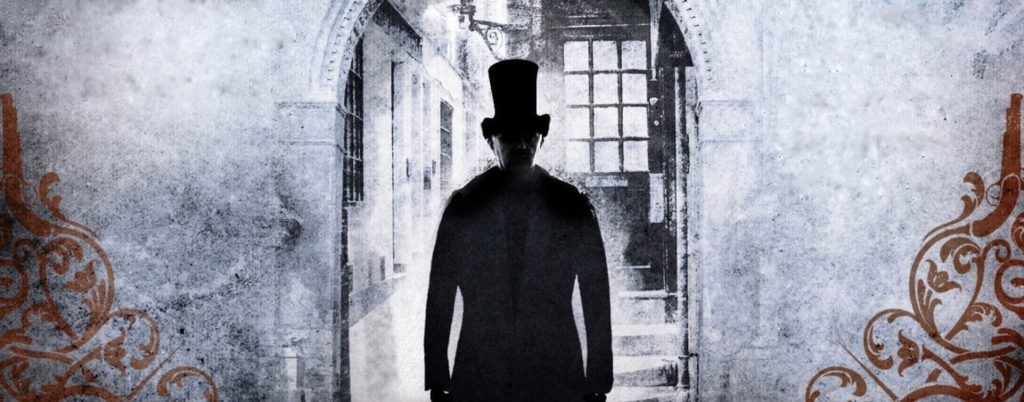Books
Introducing Blake & Avery
I never set out to write a double act like Blake and Avery. For years before I started writing thrillers, the idea that was knocking around my head was about a clever, self-taught intellectual inquiry agent—the prototype of the private eye—with a lowlife criminal past, living in 1840s London, a time and place in the midst of tumultuous change. But in the course of writing my first novel, The Strangler Vine, I ended up not just with Jeremiah Blake, but with Captain William Avery too.
I had decided to set the book in India. I had become fascinated by the Thugs—the gangs of murderous bandits who haunted the roads of India in the 1820s and 30s, befriending, then strangling, unwary travellers.  There is still a fierce historical debate about whether they really existed and how the British treated them (brutally), and I wanted to write about it. So I decided to give my detective, Blake, a sort of origins story. The frontiers of the British Empire were great places for people from unconventional backgrounds to find opportunity and reinvent themselves. It was the perfect place for Blake to have got himself educated and trained, and also to have started to question the less appealing aspects of British Imperial rule and stiff and judgemental Victorian attitudes.
There is still a fierce historical debate about whether they really existed and how the British treated them (brutally), and I wanted to write about it. So I decided to give my detective, Blake, a sort of origins story. The frontiers of the British Empire were great places for people from unconventional backgrounds to find opportunity and reinvent themselves. It was the perfect place for Blake to have got himself educated and trained, and also to have started to question the less appealing aspects of British Imperial rule and stiff and judgemental Victorian attitudes.
But when I actually started writing the book I realised two things. One was that Blake needed to be slightly mysterious and inscrutable and it seemed wrong to tell the story from his perspective. Secondly, I didn’t know anything about India! I needed another character to tell the story, we would see Blake through his eyes, the reader would learn things as he did, and most importantly, if he was new to India and a bit clueless, my ignorance could be his ignorance!
That was how I came up with William Avery, the young provincial gentleman-turned-soldier, brave, naïve, conventional and full of the prejudices of his class, but with a hidden, less straightforward side: a secret passion for books, an instinct for taking care of others, an eye for a telling detail. Oddly enough it was Avery’s voice, which started out as a response to a structural need, which came easier: he was so fallible and a bit of a blurter and reminded me a bit of me. Blake’s voice was much harder to get right. If I’m honest he’s a slightly idealized character: cool, silent, brilliant.
I’d actually planned to kill Avery off at the end of the book. But I realized that I had created a relationship that interested me and that I could develop: the older working-class man leading the younger posher devoted subordinate. In the second book, The Printer’s Coffin, the two meet in London after three years apart and have to start again. Blake is convinced that he needs no one, and is increasingly angry and at odds with Victorian society; Avery has been traumatized by the experience of war, his marriage is wobbly, but he is still fascinated by the older man. They rub each other the wrong way, and neither quite understands why they are drawn to the other, but Avery brings out Blake’s reluctant humanity, while Blake forces Avery to grow up.



Please note: Moderation is enabled and may delay your comment being posted. There is no need to resubmit your comment. By posting a comment you are agreeing to the website Terms of Use.